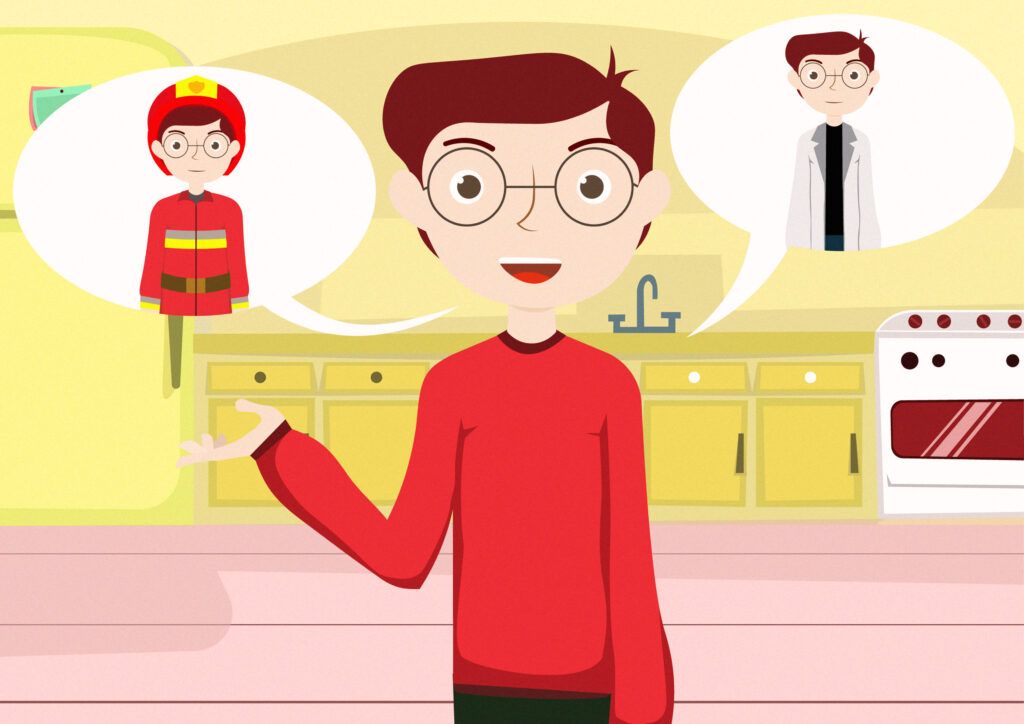“What are you going to do with your life?” my mom asks quietly, her unsmiling stare drills into my eyes.
“I don’t know Mom. I haven’t even woken up yet.”
“I know that,” she says, a little louder. “It’s a great time to think about what you intend to do.”
It’s around 6:45 and we’re in our kitchen before I walk to school. This question is repeated almost every school morning. It started when I was about nine. In winter, it is completely dark outside, a small wall lamp gives off a ring of light. In summer, bright sunlight jabs my eyes. Neither darkness nor light changes the question or gives me any idea of how I should answer. I drink some milk and eat my cream cheese bagel quickly. I am a bit late to start out.
Secretly, I call this performance, “My Interrogation” or “One More Impossible Question.” Why is she asking? Is it a real question or a plea of some kind? Why doesn’t she ask my brother or sister the same question? Is it because she sees more potential in me or maybe much less. Maybe it’s my odd, and to her infuriating, insistence in agreeing with the different sides of every argument?
“How can something be true and not true at the same time?” she asks.
“I can’t explain it but I see two competing good ideas. They’re both true.”
“They can’t both be true. You’ll have to make a decision sometime,” she says. “What ARE you going to do with your life?”
I want to shout, “I have no idea. Stop torturing me” but over the years I start to make up answers. “I’m going to be a fire fighter.” “I’m going to be a mathematical genius and prove the Goldbach Conjecture.” It doesn’t matter that neither my mom nor I know what the Goldbach Conjecture is.
She smiles. I think that answering the question might stop the questioning. I get a few days off, but inevitably, the question returns, with even more passion.
By the time I am a senior in High School, I want to ask my mom, “What gives you the right to ask me this question? What have you done?” I don’t. I feel her love and concern and anguish. “What am I going to do with my life?” I ask myself. I have no idea.
A year later, she is diagnosed with cancer and has chemo, which suppresses the creation of platelets. She has to have transfusions so she won’t bleed to death. She dies two years later, right before her first grandchild is born. I am an unmarried, college drop out who works odd jobs.
That early morning question tortures me. It is also her gift which teaches that life is short. I should use it well before time evaporates. But what is a choice which will please her? What is a choice that will please me? I do not know.
Every few weeks I donate platelets. It takes two or more hours and I hate doing it. The attendant says, “Good, the blood is flowing now.” I don’t look. The machine will take care of it without me looking. After an hour, I want it to be over. I take out a photo of my mom, holding me as a child, and say, ‘Mom, this is for you. Maybe someone will get to hold their first grandchild. I wish you had that chance.’” And there’s a feeling of warmth and even, on rare occasionally, a feeling that I am doing something with my life.

